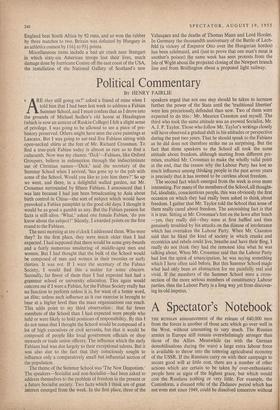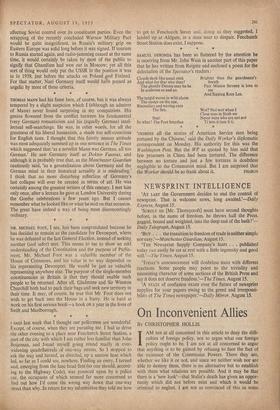A Spectator's Notebook
THE RUSSIAN announcement of the release of ,640,000 men from the forces is another of those acts which go over well in the West, without amounting to very much. The Russian armies in Europe still remain overwhelmingly stronger than those of the Allies. Meanwhile (as with the German demobilisations during the wars) a large extra labour force is available to throw into the tottering agricultural economy of the USSR. If the Russians carry on with their campaign to secure good will at little cost, there are a number of other actions which are certain to be taken by' over-enthusiastic people here as signs of the highest grace, but which would cost the Russians nothing or very little. For example, the Cominform, a disused relic of the Zhdanov period which has not even met since 1949, could be dissolved tomorrow without affecting Soviet control over its constituent parties. Even the scrapping of the recently concluded Warsaw Military Pact would be quite insignificant, as Russia's military grip on Eastern Europe was solid long before it was signed. If tourism to Russia started again, and radio-jamming ceased at the same time, it would certainly be taken by most of the public to signify that Ghandism had won out in Moscow; yet all this sort of thing would only put the USSR in the position it was in in 1939, just before the attacks on Poland #nd Finland. For that matter, Nazi Germany itself would halre passed as angelic by most of these criteria.



































 Previous page
Previous page